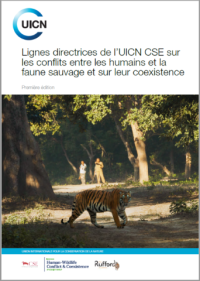Land degradation neutrality
In rangelands and grasslands, land degradation has an immediate and local impact by disrupting ecosystems from functioning, threatening livelihoods and negatively affecting social cohesion. It also threatens productivity while dovetailing with the threats of climate change in these ecologically fragile areas. The understanding of land degradation in rangelands and grasslands is weak, which is attributed to a lack of robust data and a misunderstanding of management objectives. The day-to-day management of land by pastoral communities is intricately linked to local and traditional knowledge that needs to be taken into account when monitoring the health of ecosystems and designing management interventions. Sustainable Development Goal (SDG) 15 Life on land includes Land Degradation Neutrality (LDN) as a target, which requires that the process of degradation is halted and reversed. This publication presents a rationale for participatory approaches to achieve LDN in pastoral areas while showing how this can be achieved using the Participatory Rangelands and Grasslands Assessment (PRAGA) that has been piloted in Kenya, the Niger, Burkina Faso, Uruguay and Kyrgyzstan.


